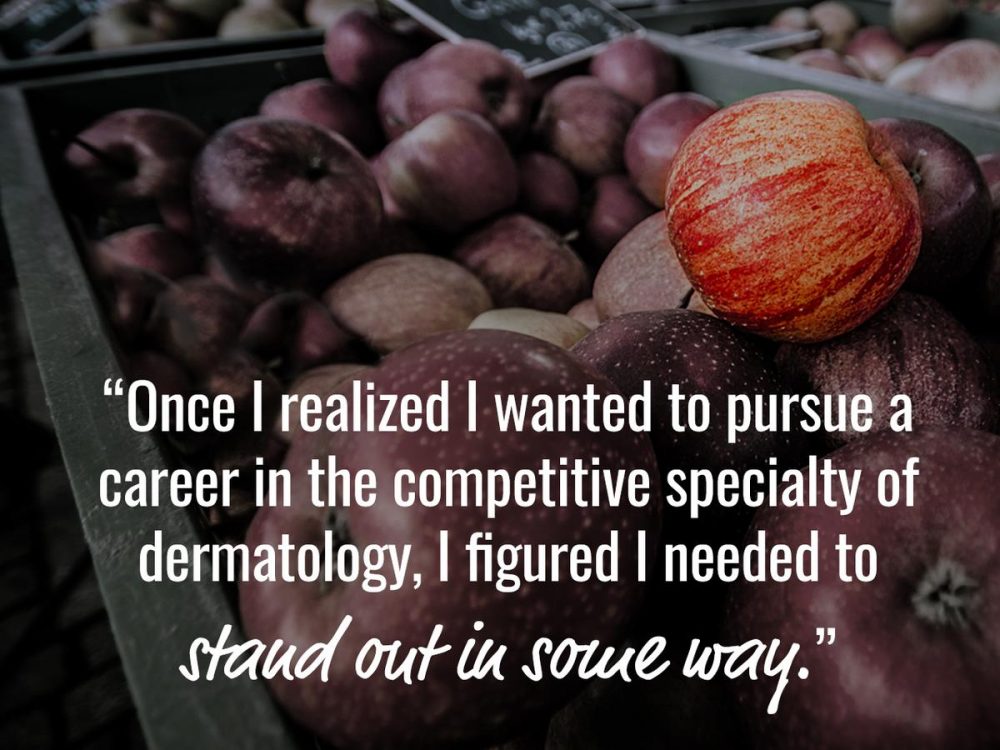Early Interest and Experience Propelled My Dermatology Writing
My trials and tribulations in writing first began in high school. I wrote a humor article in high school for our school newspaper. The experience was fun as I collected my thoughts, tried to be creative and work on my comedic stylings, and determined whether or not I could make others laugh. The feedback I received was satisfying and encouraging. Once in university, I wrote a few pieces for the engineering humor paper and one brief personal essay for the regular school paper. I enjoyed putting my thoughts to paper and loved seeing my name and/or picture in print. I received some modest positive feedback, and my parents had one more reason to be proud of me.
When I got into medical school, I saw an older year medical student writing a paper in the library. I asked her what it was for and about and she explained that she was applying to a history of medicine conference because it would be a fun experience and free travels and accommodations were provided. This sounded like a great opportunity and my parents—who were with me visiting the medical school—encouraged me to quickly put together and submit an abstract (The Impact of Linus Pauling on Modern Medicine and Society), which was due a mere two days later. The paper was accepted and I attended a very fun and interesting conference with other medical students from across the country – all expenses paid. My paper was published in the proceedings of this conference (in a book!). I was subsequently asked to submit it to and had my article published in a medical history journal. My interest in the power of writing was on the rise and my eyes were opening wider.
Standing Out Amongst the Competition
Once I realized in my second year that I wanted to pursue a career in the competitive specialty of dermatology, I figured I needed to stand out in some way and start building my curriculum vitae. I began writing more and more articles, first for the medical school journal. Then I began asking mentors and dermatology professors to co-author papers with me. I found it challenging and stimulating to come up with a relatively unique or interesting or important dermatology topic, and then research and write the paper, while often collaborating with a much more experienced dermatologist who would edit, critique, and ultimately improve our paper (and me as a writer).
After all the effort in getting an article into print, seeing my name and article published was exhilarating, albeit briefly, as I was soon onto my next article. By the end of medical school, I was one of the most published medical students in the country and my curriculum vitae was nicely filled up. Because of this, and presumably many other reasons, I was fortunate to obtain a dermatology residency position.
Striking a Work/Life/Writing Balance
After finishing residency, life started to really get busy. I began working as a dermatologist at a variety of clinics, bought a home and took on all the work related to maintaining it, and began trying to put my finances and insurance into order. I was also dealing with having a wife, and soon two beautiful, life-altering girls.
Although I felt much less pressure to “publish,” I started to miss it, and also the opportunities kept coming. I enjoyed using a different part of my brain, being creative, and I missed sharing and teaching. As well, various people I had worked with over the years would ask me to contribute an article or chapter for something they were working on, and it was certainly hard to say no to people who supported me when I was a nobody. Interestingly, I was also tapped on several occasions to contribute to Canadian national guidelines for psoriasis, rosacea, and more, all because my name had been out there in the ether for so long, and my “writing cred” meant that I was able to get the job done, both with quality writing and on time.
Now, I run my own clinic, and each of my clinic rooms has a copy of a couple of my books which my patients peruse; I’ve also had many patients request to buy copies, and more importantly, I give out copies to physicians to answer a tough question when I give CME events.
Writing has given me the opportunity to travel, to speak to colleagues far and wide, to challenge my brain (and hopefully stave off dementia!), to contribute and give back to various aspects of my profession, and even to make some reasonable money. Many physicians and patients in Canada come to see me for their skin care because they’ve seen my writing on dermatology for so many years that they presume that I’m the skin guru. I feel fortunate that I have found writing, and it really has given me so much. Renowned physician-writer Anton Chekhov really summarizes my relationship with writing: Medicine is my lawful wife and literature my mistress; when I get tired of one, I spend the night with the other.
Did you enjoy this article? If so, read more on Becoming a Thought Leader here.

